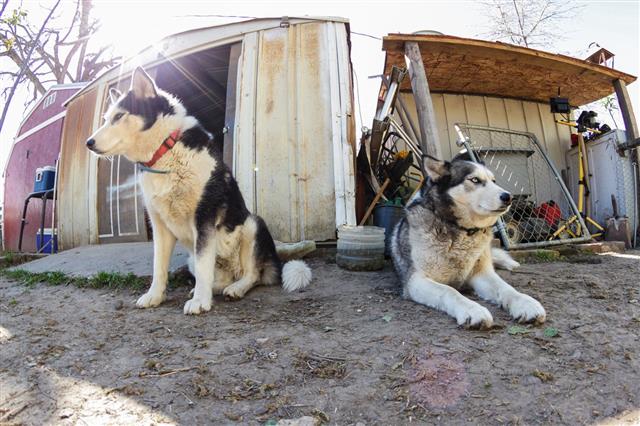
Albon is approved by the FDA for veterinary use, and is prescribed for the treatment of bacterial infections in dogs. This antibiotic also displays antiprotozoal activity, which makes it useful in getting rid of intestinal infections caused by coccidia parasites.
Caution!
During the course of treatment, make sure your pet is well-hydrated to prevent any sort of serious side effects.
Antibiotics are not approved for human use only, they can also be given to dogs. One such antibiotic that has received the nod for veterinary use is Albon. With the generic name sulfadimethoxine, Albon is an antibiotic that helps rid the body of bacterial infections in dogs. It works against a wide range of bacterial species, including staphylococci, klebsiella, streptococci, shigella, escherichia, proteus, and salmonella. It is commonly prescribed for dogs to treat bacterial infections of the urinary and respiratory tract.
Albon is also found to be effective in eliminating infection caused by the coccidian parasite. Coccidia, which are single-celled parasites, commonly infect the intestinal tract of dogs. However, an antibiotic course of Albon for a specified duration can destroy these coccidia parasites that are responsible for causing diarrhea in dogs. So, using Albon for dogs has a double whammy of benefits, as it is both, antibacterial and antiprotozoal in nature.
Mechanism of Action
Albon belongs to the class of sulfa drugs, that inhibit the synthesis of folate in bacteria. Bacteria completely depend on folate for survival and reproduction. Therefore, this action of Albon simply disrupts their ability to grow and multiply. As such, Albon does not actually ‘wipe out’ the bacteria, it only blocks their ability to reproduce, which works in curtailing the infection.
Albol is commonly sold in the form of tablets, but is also available as a liquid formulation. Giving this liquid suspension is a better option, as it has a flavor, which makes it easy to administer as far as dogs are concerned.
Side Effects
Sulfa crystals may be detected in the dog’s urine due to regular administration of Albon. In order to minimize the occurrence of crystal formation, make sure your pet is given plenty of water to drink.
Although Albon, particularly the liquid formulation, has a wide margin of safety, it may cause certain side effects, some of which can be really serious. Dogs put on this antibiotic for an extended duration of time are at increased risk of side effects such as:
- Skin rashes
- Lack of appetite
- Dry eyes
- Gastrointestinal problems such as vomiting or diarrhea
- Lethargy
- Abdominal pain
- Increased urination and thirst
- Anemia
- Vertigo
- Cough
- Joint pain and inflammation
In rare cases, Albon may cause damage to the kidneys, resulting in abnormal urine output. It can also negatively affect liver functioning, and cause jaundice. Eye infection and inflammation as a result of Albon treatment is also a cause for concern. Adverse allergic reactions that cause facial swelling and breathing problems require immediate medical attention.
Whatever be the side effects that are occurring, they should be immediately notified to the veterinarian. Your vet may either reduce the dosage or advice discontinuation of the medication completely, and suggest another alternative. In case your pet is infected by coccidia parasites, and is suffering from severe side effects due to Albon usage, your vet may prescribe Ponazuril drugs to treat the infection.
Dosage
Although the dosage will vary depending on the size of the dog, usually, the treatment for bacterial infections does not last for more than a week. The starting dose recommended is 25 mg for every pound of dog weight. However, the later doses may be reduced to 12 mg per pound of dog weight. For liquid formulation, the first dose is 1 teaspoon, while the later doses to be taken daily are half a teaspoon for every 10 pound of dog weight.
Precautions
Although Albon has received approval for veterinary use, it should not be used on those dogs with preexisting kidney or liver problems. Pregnant dogs are also not candidates for Albon treatment, as studies have shown that this antimicrobial drug can negatively affect the developing fetus. Also, since it is a sulfonamide antibiotic, dogs who are allergic to Albon may also react negatively to medication that is a member of the sulfa group of drugs. So make sure that your pet is not allergic to any of the sulfa drugs before giving it Albon.
Disclaimer: The information provided in this article is solely for educating the reader. It is not intended to be a substitute for the advice of a veterinarian.







